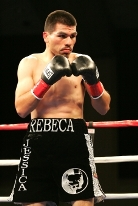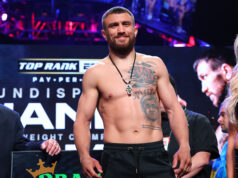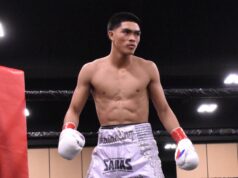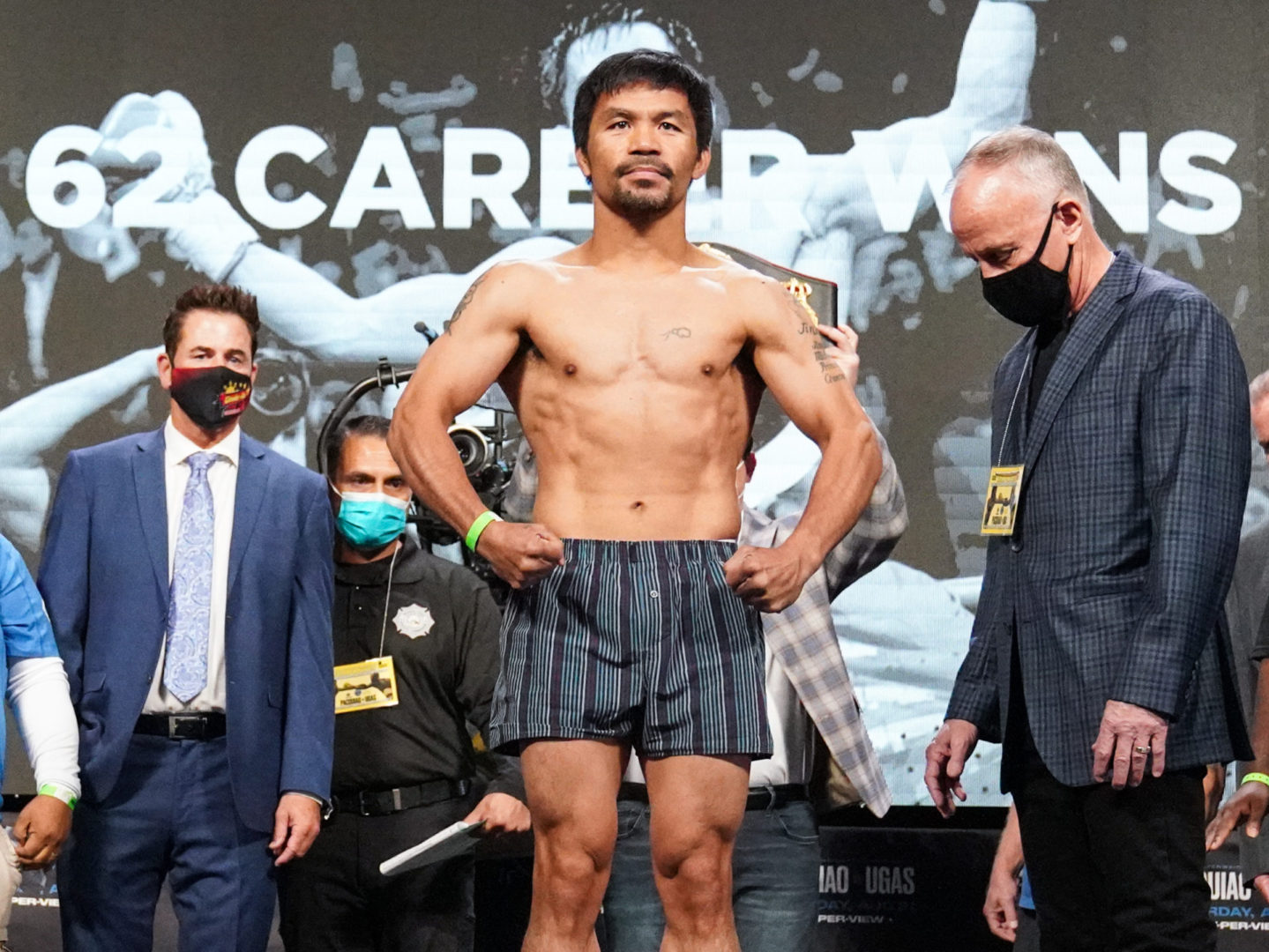
There are all kinds of symbols on the road to freedom. Some are as grand as the Statue of Liberty. Some are as simple as a pair of shoes.
“Tennis shoes,’’ Alfredo Angulo said.
For a while, they were as elusive as Angulo’s release from a detention center in El Centro, Calif., where the Mexican junior-middleweight sat, waited and worried during a seven-month stretch for what was reported to be an expired visa.
Angulo couldn’t train. It was hard enough to jog.
“No, the reality is that they didn’t let me train in there,’’ Angulo said Thursday in a conference call for his Nov. 10 appearance on the undercard of the Abner Mares-Anselmo Moreno super-bantamweight clash at Los Angeles’ Staples Center in his first fight since his release in mid-August. “It was a simple thing. They didn’t let me have tennis shoes.
“For some reason, they didn’t let me have the shoes for two months.’’
When he finally got them, tennis wasn’t on the agenda. There are no clay courts in the detention center’s yard. Then again, there isn’t a ring, either. But there was handball, Angulo’s only physical outlet while waiting for his case to be resolved and his hopes restored.
“I’m here legally,’’ said Angulo (20-2, 17 KOs), a former 154-pound champion who faces unknown Raul Casarez (19-2, 9 KOs) of Edinburg, Tex. “Everything is fine. I’m ready to move forward.’’
After a nightmarish year, that’s a victory in its own right. A year ago, Angulo lost a wild sixth-round TKO to James Kirkland in Cancun. About five months later, he says he turned himself into immigration authorities in an effort to clear up questions about his legal right to live and work in the U.S. Angulo, who grew up in the border town of Mexicali, says he wanted to pursue his boxing career in America. More important, he wanted to spend time with his daughter, wherever and whenever he wanted to. She was born in the U.S.
There are unanswered questions as to why Angulo was held for so long. He has no reported criminal record.
“I had no idea when I was going to get out,’’ said Angulo, who held an interim version of the World Boxing Organization’s junior-middleweight title. “I was told it was going to be a short time. Obviously, that didn’t happen.’’
The best guess is that he got caught in delays inevitable throughout the web of immigration politics and bureaucracy. Like so many, he was just another face among the many with lives by a border. Unlike many, however, Angulo was lucky. He had Golden Boy Promotions. He had Oscar De La Hoya, who visited him in El Centro, just 14 miles north of the Mexican border.
Golden Boy’s resources and Angulo’s potential were factors that finally led to his release. It’s another question as to whether that will lead to a realization of the early promise he displayed. Incarceration of any kind has proven to be hazardous to a ring career. Maybe, it’s the idle time. Maybe, it’s the diet. Maybe, it’s the handball instead of sparring. Maybe, it’s all three and much more.
For Angulo, that lesson was in front of him in his last fight. Kirkland, who overcame a first-round knockdown before stopping Angulo last November, spent 18 months in a Texas prison on a 2009 weapons charge. After his release, Kirkland easily won two tune-ups before suffering a stunning first-round stoppage against unknown Nobuhiro Ishida.
Angulo re-enters the ring for the first time in a year predictably confident. He has new trainer in Andre Ward’s corner man, Virgil Hunter, who moves into a job once occupied by Nacho Beristain.
“I’m still Alfredo ‘El Perro’ Angulo,’’ he said in a reference to his nickname, Dog. “There’s no change in style. It’s just that Virgil Hunter has added things.’’
But no addition is quite as valuable as what Angulo re-acquired. Hopefully, he’s also kept those tennis shoes. They are a well-worn symbol of what freedom means.









